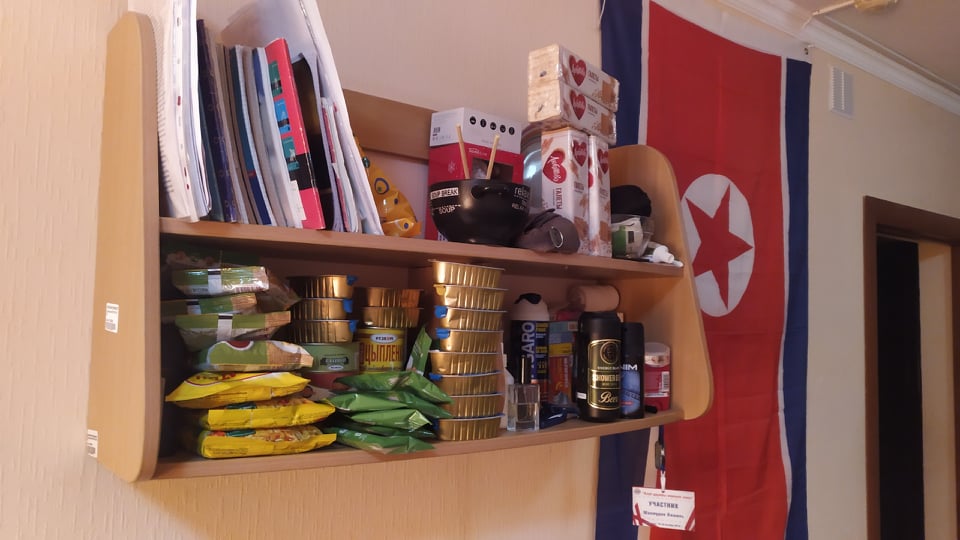Stuck abroad and unable to return to Azerbaijan — a blessing or a curse?
The coronavirus pandemic has left many Azerbaijanis stranded outside the country. Some of them were working abroad, some of them were studying. Not everyone had time to return, because the borders were closed too quickly.
After the first stage of strict quarantine, Azerbaijan started talking about opening borders, but the epidemiological situation has gotten so bad that the country had to shut back down.
- Life in the Georgian city of Marneuli without weddings for 1000 guests
- Homegrown art: how Azerbaijani youth is cultivating culture in the regions
How are those away from home surviving the pandemic and how do they feel about returning?
Kamil. Quarantine in Russia

Kamil lives in Baku, but went to Russia to study. He graduated from the history department at the University of Astrakhan and recently defended his thesis. He did not return to Azerbaijan because of the preparation he had to do before graduating, because he had to defend his thesis, and because he was going to apply to get his master’s degree in Moscow.
“At first we were given two hours a day to go grocery shopping. Before we could leave the dorms, our names, surnames, room numbers, times we were leaving and time of return were recorded in a special notebook. Then our time outside was reduced to an hour. No one had any particular desire to go out into the crowd, we understand that the situation is unsafe. And then they stopped allowing us to go the store.”
When the pandemic began, local students left the dorms to go home, as the university switched from full-time in-person education to distance learning. Mainly foreigners remained behind – students from Turkmenistan, Kazakhstan and several people from Azerbaijan.
As of the end of July 2020, Russia ranks fourth in the world in terms of the number of COVID-19 infections. Quarantine here was tough from the start. In Astrakhan, people without a special pass were only allowed to go to the store and the pharmacy, and violators were fined.
At the end of June, the quarantine was eased slightly, but, according to Kamil, student dormitories continued to live according to the rules of isolation: students only had the right to go out when accompanied by volunteer “activists,” and only when absolutely necessary.
“Those who had their own group of friends are doing well, they stick together. I don’t have them, so I spend the whole day just waiting for the next day to start. I had two roommates, one went back to Azerbaijan, the other, a citizen of Yemen, stayed here. As far as I know, the Yemeni government sends its students a stipend, and it’s not too small, by our standards – $600. And my parents are sending me money.

Basically, I tried to watch movies and write my thesis. It was a hard way to live, but I had no other choice.
In quarantine, I bought myself a harmonica. I was bored and wanted to play some musical instrument. The harmonica seemed like it would be easy to learn, and I also love the blues. It’s a pity, I ended up damaging it a little.”
Kamil finished his thesis, successfully defended it, and is going to enter his master’s program. He is still living in the same dormitory.
“Of course, I’m afraid to go by train from Astrakhan to Moscow. It would even be safer to travel on a horse-drawn cart. I am afraid of infecting my grandfather who lives there and who will want to meet up with me.”
Although Kamil misses Baku, the situation there does not seem much safer to him than in Russia.
“Sometimes I miss the Baku heat and warm humid wind. In Astrakhan, wind is a rare phenomenon.
I am horrified by the methods Azerbaijan is using to fight the pandemic and by the irresponsibility of my compatriots. It is clear that people got sick of the senseless restrictions and that everyone is trying to weasel their way out of them as best they can, but when it comes to those who don’t believe in the virus at all, and believe it’s all just a “game played by those in power”, it is very upsetting.
Even here, in our dorm, there are conspiracy theorists. I no longer have the strength to explain and enlighten them, it’s like talking to a brick wall.”
How to return to Azerbaijan?
Azerbaijan is now under a strict quarantine regime: people are allowed to leave home for two hours a day after receiving SMS permission. The borders are officially closed until August 31, both air and land, but there are several “special flights” to Istanbul, Berlin and London. They are carried out by the Azerbaijan national airline, Azal Airline (there is also a company, Belavia, running flights from Baku-Minsk-Baku).
That is, Azerbaijanis “stuck” abroad can return, but will only be allowed on Azal flights, for example, if they are able to present recent corona test results that came back negative. Then they write down the address of where they will self-isolate for two weeks – that is, they will not be given SMS permission to leave the house for two hours a day.
Azerbaijan is not admitting those who are infected back into the country.
During the first stage of the quarantine regime back in the spring, citizens who returned home were quarantined in hospitals and hotels, and tested here.
Nargiz. Quarantine in France

Nargiz is a first-year student at the University of Paris Nanterre in the Department of Organizational Psychology.
“I didn’t return home because I was afraid that I would need to return to France later on business, but wouldn’t be able to because of the closed borders. I still need to do an internship here and apply for a visa extension, so I’m here for now.”
Quarantine in France began on March 17 and lasted until May 11. Only pharmacies, markets and banks remained open. At the end of July, France managed to contain the increase in the daily number of infections and stabilize the total number of patients with COVID-19 at about 70,000 people.
“We could leave the house by writing an “attestation de déplacement ”, where we indicated the reason for leaving the house (from several options: going to the market for essential groceries, for family matters, or physical activity within a radius of 1 km from the house), as well as the time we left and our address.
Every day at 8 o’clock in the evening people looked out of their windows or went out onto their balconies and applauded the medical workers.
Nargiz is glad that she is not alone. She lives with her friends. She even managed to celebrate her birthday “by the rules”.
“At midnight, as is tradition, my family called me to say, ‘happy birthday’, and in the evening we dressed up, set the table, turned on the music. The girls got me cake, champagne, and sweets from Normandy. I taught them Azerbaijani and Russian toasts. Despite the fact that there was a quarantine regime, it was fun, because I had friends nearby.

Many in quarantine began to exercise, like jogging, including my housemates. We studied and worked remotely. I completed the rest of the semester online, and passed my exams as well.
And on May 11, the quarantine began to be gradually lifted.
I really hope that the situation in Azerbaijan will not reach the scale that, for example, we had in France. On social media, I constantly see pictures of people getting together and going out for walks, despite the quarantine.
I am worried about my family and loved ones in Azerbaijan, but I think I was lucky not to be there.
On the other hand, I still hope that I will be able to come to Baku for a couple of weeks in August, even if I have to be isolated, because I want to see my family.”
How is Operation Return going?
In order to bring back all the citizens of Azerbaijan who remained abroad, a special internet portal, “Eved gedirəm” (“I’m going home”), was created, where you can register and wait for help, but it is only for those who stayed in Russia, where there are no regular flights and where people are gradually flown home on charter flights.
The site reports that it has helped 500 people return home, another 500 people are waiting for their turn.
Charter flights brought tens of thousands of people from different countries back in April, during the “first quarantine”.
However, in those countries where there were not so many Azerbaijani citizens as in Turkey or Russia, many had to travel on their own, without anyone’s help. This often involved re-purchasing expensive tickets and dealing with the risk of sudden flight cancellations. Still, the overwhelming majority of people decided to return to their homeland and not wait out the epidemic abroad.


















